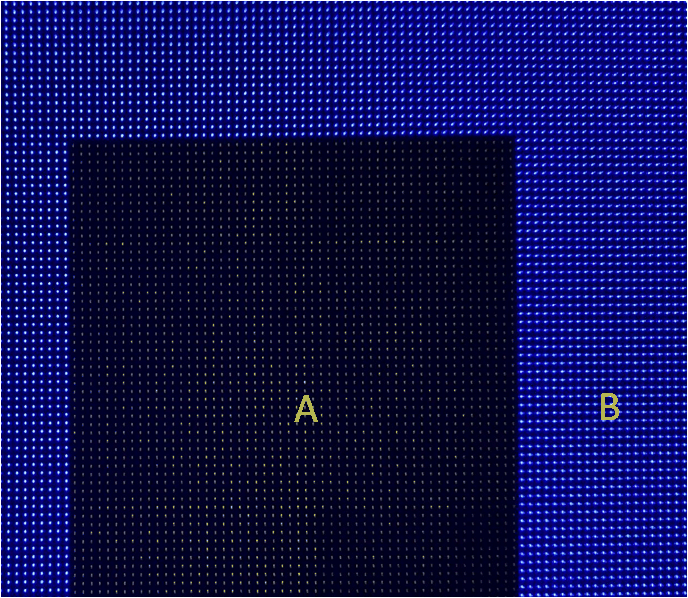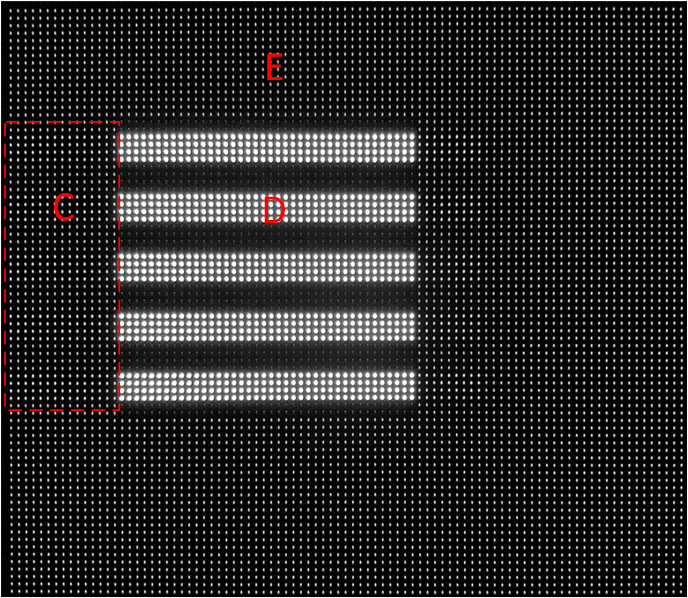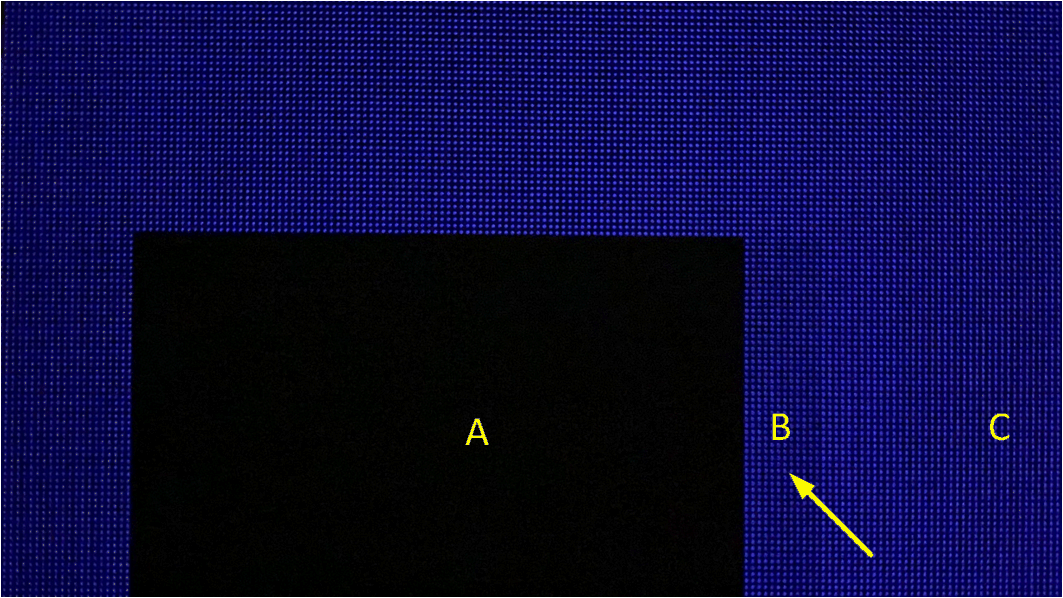SLVAFE4 june 2023 TLC6983
2.3 Coupling
Coupling is one of the critical challenges for display performance and it includes many types due to different causes. This topic will describe two most common types of coupling issues.
As mentioned above, since the human’s eyes are very sensitive in ultra-low brightness, both the small brightness and color temperature difference on pixels will be captured, especially on the application based on time-multiplexing driving technology and All-in-one technology. The channels connected to the same lines will interplay when they don’t turn on or turn off at the same time since the parasitic capacitor of LEDs, PCB and so on.
Figure 2-8 shows one type of brighter coupling, the black area A is lighted coupled by area B. Figure 2-9 shows another type of brighter coupling, the bright horizontal grid lines in area D couples the corresponding lines in area C to be brighter than other lines, such as area E.
 Figure 2-8 Brighter Coupling –
1
Figure 2-8 Brighter Coupling –
1 Figure 2-9 Brighter Coupling –
2
Figure 2-9 Brighter Coupling –
2Figure 2-10 shows the darker coupling, the dark area A couples area B to be darker than other lines, such as area C.
 Figure 2-10 Darker Coupling
Figure 2-10 Darker Coupling